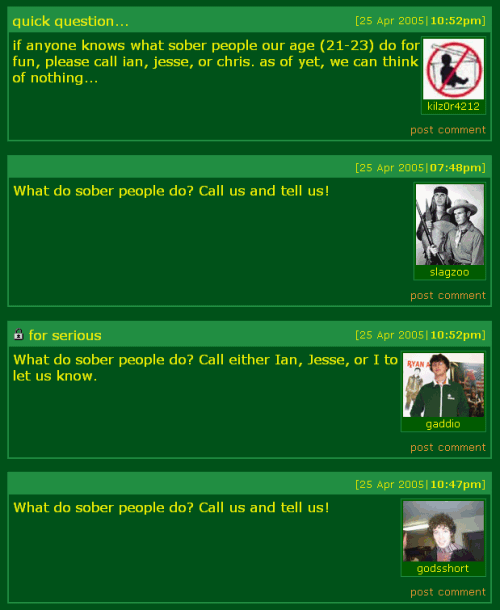Writing transparently is hard–harder, I’ve discovered, than just relaxing copyright or creating collaboratively. Most of the time I still can’t bring myself to do it.
Most writers don’t even consider transparency an option; for that matter, neither do most readers–witness spoiler space. There’s a very strong trend in Western culture toward the idea that a) all good stories must have mysteries revealed within them and b) to reveal such mysteries to someone else when that someone hasn’t read the whole thing is taboo. Mentioning that it’s a sled, for example, is synonymous with “ruining” the relevant work.
But it wasn’t always so, and it isn’t always now.
British playwright (producer, director, agit-prop rabble-rouser) John McGrath, in his classic theater text A Good Night Out, makes the point that such authorial sleigh-of-hand is unnecessary: it’s a device we’ve come to expect because it’s valuable in making a certain segment of your audience feel their expensive education is worthwhile.
Go ahead, try to think of the last movie, TV show or novel you watched or read that didn’t feel the need to hand you a Shocking Twist in its third act. Police procedurals and courtroom dramas are desperate for this, as are reality shows. Sitcoms depend on inducing revelation in both audiences and characters within the show. I think it’s impossible to find a modern horror movie that is not also a mystery–to the point where some such movies now add a third pseudoconclusion to fake out the people who were prepared for the second one.
I submit to you that this is weak and unnecessary writing.
By now you probably have thought of a story you know without a big revelation, but I’m willing to bet it wasn’t the first thing that came to mind, or the second. My own exemplar is The Laramie Project, and it was Dr. Tony Haigh’s commentary on my Drama senior statement two years ago that made me understand why it was different. I talked a lot about our production of Laramie in my speech, and Tony came up to me afterwards–only a little drunk–to say “I hope you learn to write with that same transparency.”
I was like “oh, I don’t?” and then “Oh. I don’t.”
So there’s transparency in what you’re writing, which makes it stronger by eliminating the weakness of Shocking Twist gimmickry. And then there’s transparency in creative process, which not even McGrath proposed, but which the concept of open source has made a sudden possibility.
What if you let your readers see the story developing as you come up with it? Anathema. Scandal. They’ll realize it didn’t just burst from your forehead! They’ll see the stupid things you did in drafts. They’ll know about the Shocking Twist. There won’t be any anticipation, any hunger! So let’s print our script on copy-proof red paper and post guards around the soundstage; let’s pollute the rumor mills and drop hints without context in our blogs. As Zed Lopez points out, it’s hard to imagine a writer letting you see his or her process the way some painters do.
I submit to you that these are weak and unnecessary choices.
Which isn’t to say I do it well, or at all. Like I said, it’s hard. But I don’t believe that hiding information makes it more valuable in a positive way, and I’m going to try letting go of that. I’m not going to talk about the process of every story I write here, because it would be boring, but I’m going to try not to be coy about where they’re going.

